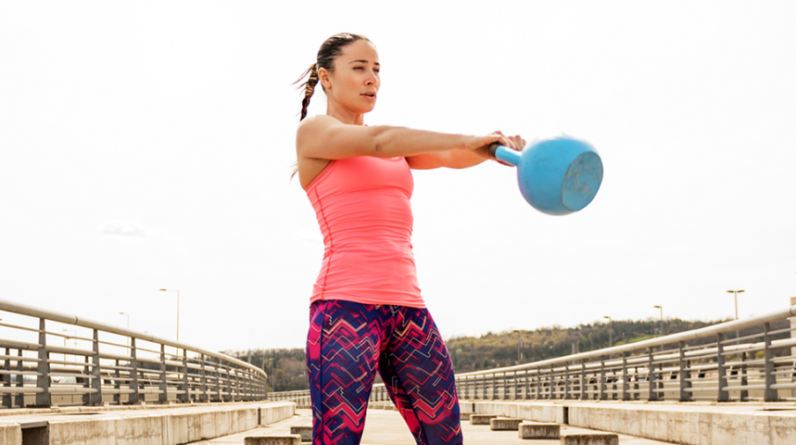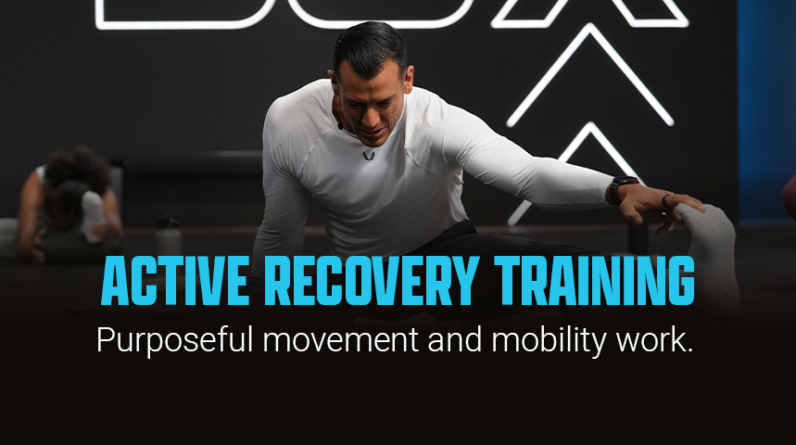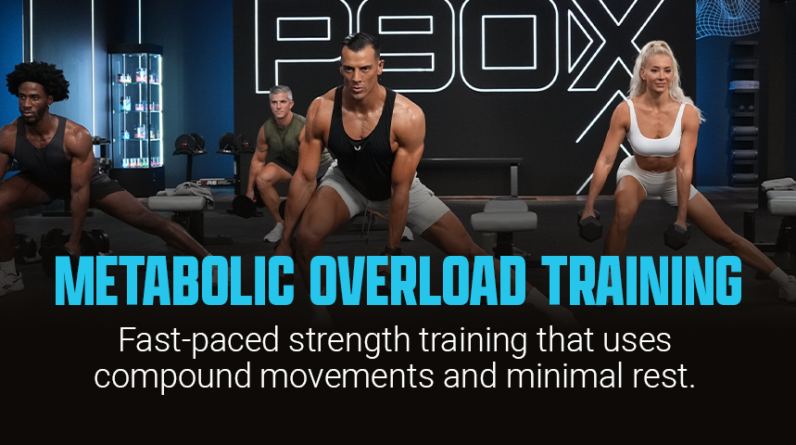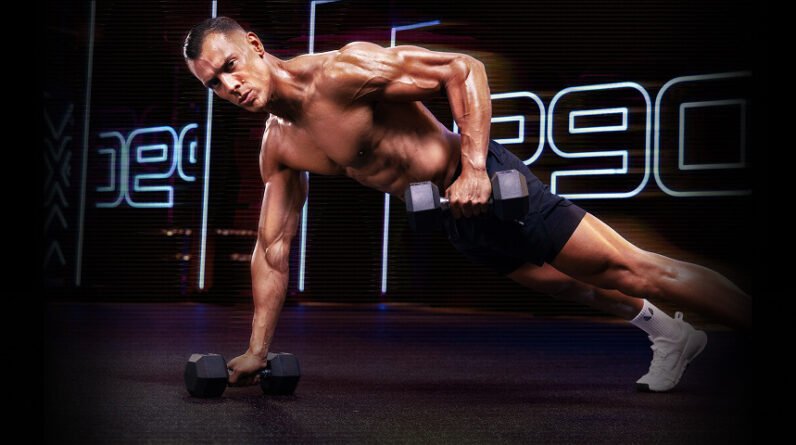
The kettlebell swing is one of the best exercises around which you can program a circuit workout. The exercise targets the posterior chain and quickly raises your heart rate, making it a full-body strength and cardio exercise. But to reap the benefits of the kettlebell swing (and not get injured), you need to learn proper form.
Kettlebell Swing: Step-by-Step Instructions
- Place the kettlebell about a foot in front of you and stand with your feet shoulder-width apart.
- Keeping your back flat, core engaged, arms straight, and a slight bend in your knees, push your hips back and grip the kettlebell’s handle in both hands.
- “Hike” the kettlebell to initiate the movement, swinging it back between your legs before swinging it up to chest height as you thrust your hips forward to return to a standing position.
- Hike the kettlebell back between your legs to begin your next rep.
Make it easier: Use a lighter weight.
Make it harder: Use a heavier weight, or do a single-arm kettlebell swing, using the same form to perform equal reps on each side.
Mistakes to Avoid for the Kettlebell Swing
Dr. Jordan Duncan, DC, owner of Silverdale Sport & Spine in Silverdale, Washington, cautions against a few common kettlebell swing mistakes.
1. Squatting instead of hip hinging
“Make sure your hips move primarily back instead of down, as that would turn the exercise into a squat,” Duncan says. “You can practice the hinge movement without a kettlebell by standing a foot or so in front of a wall (with your back to the wall) and moving your hips straight back (with minimal knee bend) until your hips contact the wall.”
2. Swinging with your arms
“As your arms contact your body (corresponding to the time when you start the hip hinge), you want them to stay connected to your body until you explode up and let the kettlebell float during the upswing,” Duncan says. “Some people lose this contact between their arms and body, resulting in a loose, floppy swing.”
Also, avoid using your arms or shoulders to initiate the kettlebell swing; the power of your kettlebell swing should come from your hip extension.
3. A downswing that’s too short
“Another common mistake is not allowing the kettlebell to travel back far enough between the thighs at the terminal point of the downswing,” Duncan says. He suggests having someone hold a clipboard about a foot behind your hips so that you can hit the clipboard with the kettlebell on your downswing, ensuring that the kettlebell has traveled far enough.
Benefits of Kettlebell Swings
When you consider the kettlebell swing’s benefits, it’s easy to understand why it’s one of the most popular kettlebell exercises.
Works the entire backside of your body
The kettlebell swing is ideal for strengthening the posterior chain, or all the muscles that run along the back of your body, from the base of your skull to the backs of your feet. And if you’re interested in improving your power and maximal strength, research shows that the kettlebell swing is an excellent option.
Improves cardiovascular endurance
The kettlebell swing will also get your heart pumping, making it a go-to cardio move for HIIT and circuit workouts.
What Muscles Do Kettlebell Swings Work
Similar to a deadlift, you’ll feel kettlebell swings working most of your body, including your:
The kettlebell swing’s hip hinge “requires powerful contraction of the gluteus maximus and hamstrings to extend the hip on the upswing,” Duncan explains. Your core muscles provide stability throughout the movement. “Athletes are taught to ‘break the handle’ of the kettlebell during the swing, which activates the latissimus dorsi muscles,” Duncan says.
Where to Buy Kettlebells
You can purchase kettlebells (including soft and adjustable options) at most fitness equipment and online retailers. Here are a few popular options:
Rogue Kettlebells
Get it from Rogue.
Cap Barbell Enamel Coated Cast Iron Kettlebells
Get it from Amazon.
Yes4All Solid Cast Iron Kettlebells
Get it from Amazon.







